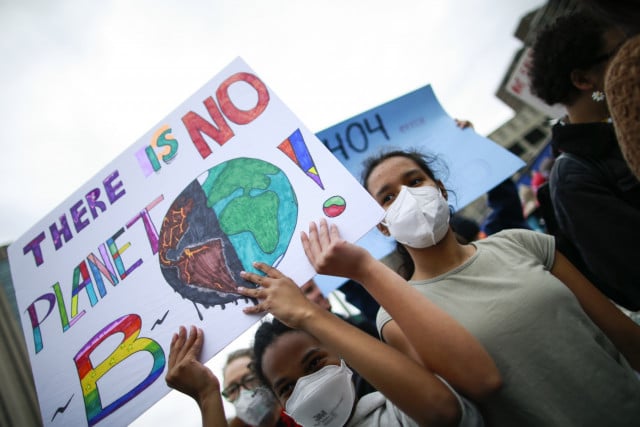Climate: Who Cares What Happens When We’re Gone or, as They Say, “Après Nous le Déluge”

- By Cambodianess
- April 17, 2022 11:14 AM
On April 4, 2022, the Intergovernmental Panel on Climate Change (IPCC) published what was meant to be the definite guide to stop global warming on the planet. This document explains how societies and economies must transform themselves in order to assure a “liveable” future as mentioned in the Agence France Presse article published at Cambodianess.com on April 4.
Without going into details concerning the experts’ observations on the evolution of the climate, the foreseeable upcoming catastrophes and their recommendations so as not live through the apocalypse within the next few decades, one must stress that they state, and this, since their report published in August 2021 (whose third part was released on April 4, 2022), that human-activity responsibility in temperature increases is “unequivocal.”
As the IPCC experts write, “[o]bserved increases in well-mixed greenhouse gas (GHG) concentrations since around 1750 are unequivocally caused by human activities.” Previously, they had spoken of a “link between human activity and climate change” explains Climate Consulting Selectra at its website. Until this last report, the IPCC experts had given great importance to the degrees of uncertainty due to three factors: the limitations of the measurement tools, the availability of the information and the competence of the experimenters carrying out measurements, said Climate Consulting Selectra.
However, as of now, the human influence is described as “unequivocal” by the IPCC—which is an intergovernmental body that builds on the work of some 300 experts who summarize thousands of scientific studies.
It logically follows that, through drastic changes in human activities and especially energy production, modes of transport and consumption patterns, global warming is about to reach the threshold of 1.5 degrees Celsius in 2030, that is, 10 years before the IPCC’s previous estimation.
In order not to come to this or to even worst since we may not be far from an irreversible situation, the most optimistic scenario would be, according to the experts, that strong international cooperation be established, giving priority to sustainable development.
However, among the five scenarios outlined in their report, wouldn’t we be in one of these two: 1) the one of a world characterized by competition among countries, slow economic growth, policies geared toward security and industrial production with little consideration for the environment; or 2) the one of a world characterized by major inequalities among countries and within countries. A minority will be responsible for most of the greenhouse gas emissions and most of the population will remain poor and vulnerable to climate change.
Regarding climate change, those experts make one’s blood run cold.
So much so that some people prefer not to believe them: Who cares what happens when they’re gone, isn’t…















